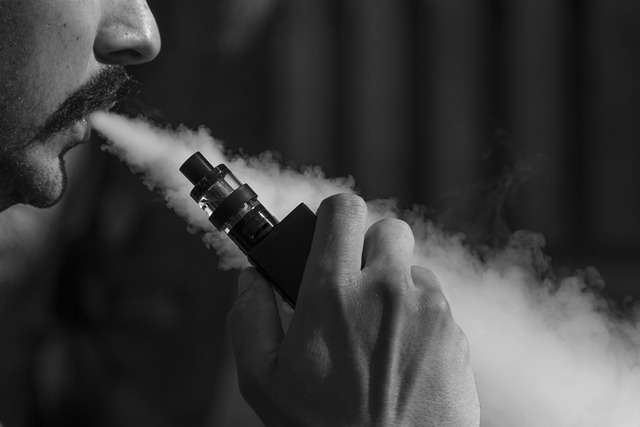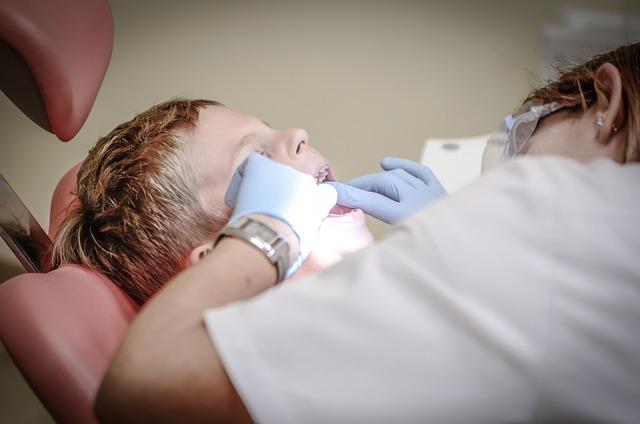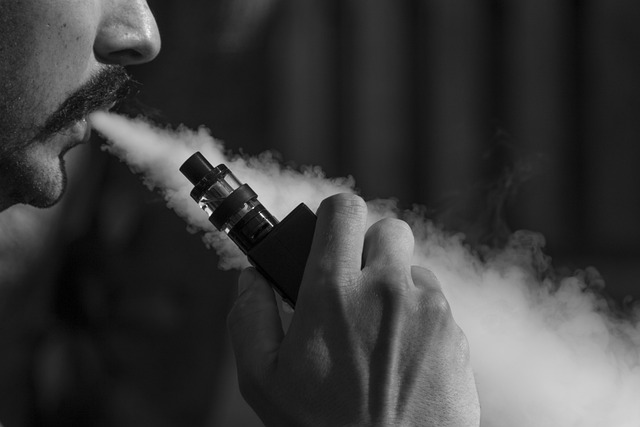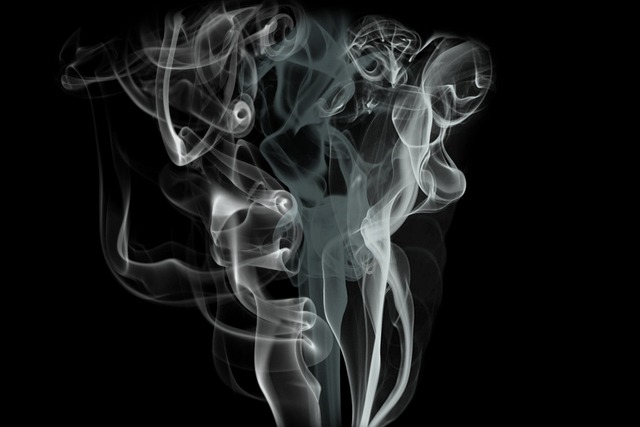Wisdom Tooth Extraction: Can You Smoke Before?
Many of us have experienced the discomfort and inconvenience of wisdom tooth eruption. As these third molars make their way into our mouths, they often bring along a host of problems, from pain and swelling to potential damage to surrounding teeth. In such cases, extraction becomes a necessary solution. However, if you’re a smoker, you might be wondering whether lighting up before your wisdom tooth extraction is a good idea. In this article, we will delve into the question: Can you smoke before wisdom tooth extraction? Armed with expert insights and a comprehensive understanding of the subject, we aim to provide you with a clear answer while ensuring your oral health remains a top priority.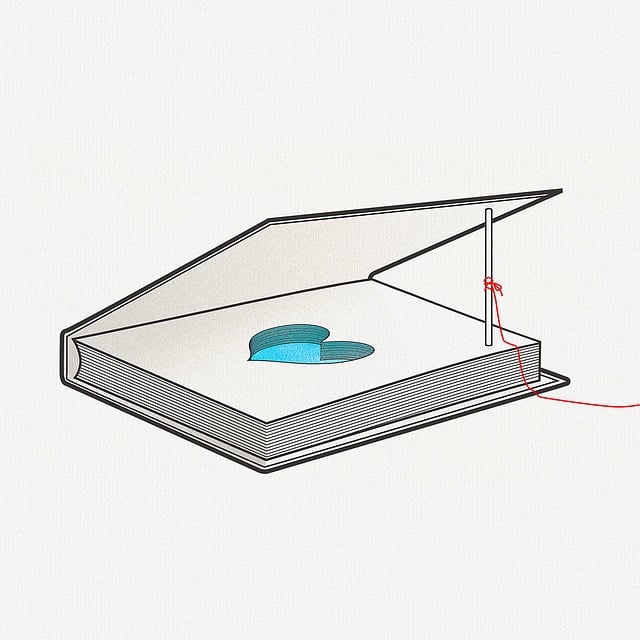
1. Understanding Wisdom Tooth Extraction: The Importance of Preoperative Preparations
Before undergoing wisdom tooth extraction, it is crucial to be well-prepared for the procedure. Preoperative preparations play a significant role in ensuring a smooth and successful extraction. Here are some important factors to consider:
1. Consultation with an Oral Surgeon: Schedule a consultation with an experienced oral surgeon who specializes in wisdom tooth extraction. They will assess your oral health, take X-rays, and determine the best course of action. It is essential to have a thorough discussion with the surgeon, addressing any concerns or questions you may have.
2. Medication and Medical History: Inform your oral surgeon about any medications you are currently taking, as well as any medical conditions you have. This information will help the surgeon develop an appropriate treatment plan and avoid any complications during the procedure.
3. Dietary Restrictions: Your surgeon may advise you to follow specific dietary restrictions leading up to the extraction. This could involve avoiding certain foods or beverages, such as alcohol or hot liquids, to minimize the risk of complications and ensure a smooth healing process.
4. Arrange Transportation: Since wisdom tooth extraction is typically performed under anesthesia, it is important to arrange for transportation to and from the oral surgeon’s office. You will not be able to drive yourself home after the procedure, so having someone reliable accompany you is crucial.
5. Post-Extraction Care: Familiarize yourself with the post-extraction care instructions provided by your surgeon. This may include guidelines for managing pain, swelling, and bleeding, as well as information on proper oral hygiene practices to promote healing.

2. The Impact of Smoking on Wisdom Tooth Extraction: A Comprehensive Analysis
Wisdom tooth extraction is a common dental procedure that many individuals undergo. However, the impact of smoking on this procedure is often overlooked. In this comprehensive analysis, we aim to shed light on the correlation between smoking and wisdom tooth extraction, providing valuable insights for both smokers and dental professionals.
1. Increased risk of complications: Smoking has been found to significantly increase the risk of complications during and after wisdom tooth extraction. These complications can include delayed healing, infection, dry socket, and excessive bleeding. The chemicals present in cigarettes can impair the body’s ability to heal properly, making smokers more susceptible to these complications.
- Delayed healing: Smoking constricts blood vessels, reducing blood flow to the surgical site. This decreased blood flow hinders the delivery of oxygen and nutrients necessary for healing, ultimately prolonging the recovery process.
- Infection: The chemicals in cigarettes weaken the body’s immune system, making smokers more vulnerable to infections after surgery. This can lead to severe pain, swelling, and a prolonged healing period.
- Dry socket: Smoking has been strongly associated with an increased risk of developing dry socket, a painful condition that occurs when the blood clot at the extraction site becomes dislodged or dissolves prematurely. This can delay healing and require additional treatment.
- Excessive bleeding: Smoking increases the chances of excessive bleeding during and after the extraction procedure. Nicotine and other chemicals in cigarettes can interfere with blood clotting, leading to prolonged bleeding and potential complications.
2. Impaired anesthetic efficacy: Smoking can also impact the effectiveness of local anesthesia during wisdom tooth extraction. The nicotine present in cigarettes can constrict blood vessels, reducing blood flow to the area where the anesthetic is administered. This diminished blood flow can result in a slower onset and shorter duration of anesthesia, potentially leading to discomfort or inadequate pain management during the procedure.
Given the significant impact smoking can have on wisdom tooth extraction, it is crucial for smokers to be aware of these risks and for dental professionals to consider smoking status when planning and performing the procedure. By understanding the potential complications associated with smoking, individuals can make informed decisions and take necessary precautions to ensure a successful and uneventful extraction process.

3. Exploring the Risks: Can You Smoke Before Wisdom Tooth Extraction?
Before undergoing wisdom tooth extraction, it’s important to understand the risks associated with smoking. While it may be tempting to have a cigarette before the procedure, it is strongly advised against. Smoking can significantly impact the healing process and increase the likelihood of complications. Here’s why:
1. Delayed Healing: Smoking restricts blood flow and reduces oxygen levels in the body. This can impede the healing process, making it take longer for your extraction site to heal properly. Additionally, smoking can increase the risk of infection and dry socket, a painful condition where the blood clot dislodges from the socket, exposing the bone.
2. Increased Risk of Infection: Smoking weakens the immune system, making it harder for the body to fight off infections. After wisdom tooth extraction, the extraction site is vulnerable and more susceptible to bacteria. Smoking can introduce harmful substances and bacteria into the area, increasing the chances of infection and delaying recovery.

4. Guidelines and Recommendations: Smoking and Wisdom Tooth Extraction
When it comes to smoking and wisdom tooth extraction, there are several important guidelines and recommendations to keep in mind for a smooth recovery. It is crucial to follow these guidelines to minimize the risk of complications and ensure the best possible outcome.
Here are some key recommendations:
- Avoid smoking for at least 72 hours after the extraction to allow proper healing.
- Smoking can delay the healing process and increase the risk of complications such as infection and dry socket.
- If you are a regular smoker, consider quitting or cutting back on smoking before and after the procedure to promote better healing.
Additionally, here are some helpful tips:
- Avoid using tobacco products, including cigarettes, cigars, and chewing tobacco, during the recovery period.
- Avoid exposure to secondhand smoke, as it can also negatively impact the healing process.
- Follow any additional recommendations provided by your dentist or oral surgeon to ensure a successful recovery.
By following these guidelines and recommendations, you can greatly improve your chances of a smooth and successful recovery after wisdom tooth extraction.

5. Precautionary Measures: How to Minimize Risks if You Smoke Before Wisdom Tooth Extraction
It is important to take certain precautionary measures if you smoke before undergoing wisdom tooth extraction. Smoking can have detrimental effects on the healing process and increase the risk of complications. By following these guidelines, you can minimize the risks associated with smoking and ensure a smoother recovery:
- Quit smoking, if possible: While it may be challenging, quitting smoking before your wisdom tooth extraction is highly recommended. Smoking can impair blood circulation and compromise your body’s ability to heal efficiently. By quitting, you can significantly reduce the likelihood of complications.
- Avoid smoking for at least 48 hours before the procedure: If quitting isn’t feasible, it is crucial to refrain from smoking for at least 48 hours before your wisdom tooth extraction. This will help decrease the presence of nicotine and other harmful substances in your system, which can hinder the healing process and increase the risk of infection.
- Inform your dentist about your smoking habits: Make sure to inform your dentist about your smoking habits during your consultation. This will allow them to assess your situation accurately and provide personalized advice and recommendations to minimize potential risks.
Additionally, it is important to note that smoking after wisdom tooth extraction is highly discouraged during the entire healing process. Smoking can delay healing, increase the risk of dry socket, and lead to other complications. To ensure the best possible outcome, it is strongly advised to abstain from smoking until you have fully recovered and received clearance from your dentist or oral surgeon.
6. The Road to a Smooth Recovery: Postoperative Smoking and Wisdom Tooth Extraction
After undergoing wisdom tooth extraction, it is crucial to understand the impact of smoking on the recovery process. Smoking can significantly hinder the healing of the extraction site and increase the risk of complications. Here, we will delve into the reasons why postoperative smoking should be avoided and provide helpful tips for a smooth recovery.
Effects of smoking on postoperative recovery:
- Delayed healing: Smoking introduces harmful chemicals into the body that can impede the natural healing process. This can prolong the recovery time and increase the chances of infection.
- Dry socket risk: One of the most common complications after wisdom tooth extraction is a condition known as dry socket. Smoking exacerbates the risk of developing dry socket, a painful condition where the blood clot that forms in the extraction site is dislodged or dissolves prematurely.
Tips for a smooth recovery:
- Avoid smoking: It is highly recommended to refrain from smoking for at least 72 hours after the procedure. Quitting smoking altogether during the recovery period can greatly enhance the healing process.
- Oral hygiene: Maintaining good oral hygiene is crucial during the recovery period. Gently brushing your teeth, tongue, and gums after meals, along with rinsing your mouth with warm saltwater, can help prevent infection and promote healing.
7. Expert Insights: The Final Verdict on Smoking Before Wisdom Tooth Extraction
When it comes to smoking before wisdom tooth extraction, experts unanimously agree that it should be avoided at all costs. Smoking can have detrimental effects on the healing process and increase the risk of complications. Here are some insights from dental professionals:
1. Delayed Healing:
Smoking slows down the healing process by constricting blood vessels and reducing oxygen flow to the surgical site. This impairs the body’s ability to repair the extraction site, prolonging recovery time and increasing the likelihood of post-operative complications.
2. Increased Risk of Dry Socket:
One of the most common complications after wisdom tooth extraction is dry socket, a painful condition where the blood clot that forms in the socket is dislodged or dissolves prematurely. Smoking introduces harmful chemicals and heat into the mouth, which can disrupt the blood clot and hinder the formation of new tissue, leading to dry socket.
Frequently Asked Questions
Q: Can I smoke before getting my wisdom tooth extracted?
A: No, it is strongly advised to avoid smoking before a wisdom tooth extraction.
Q: Why is it important to refrain from smoking?
A: Smoking can hinder the healing process and increase the risk of complications after wisdom tooth extraction.
Q: What are the risks associated with smoking before the procedure?
A: Smoking can delay healing, cause dry socket, increase the chance of infection, and impair blood clot formation.
Q: How does smoking affect the healing process?
A: Smoking restricts blood flow and oxygen supply, which are crucial for proper healing. It can also damage the delicate tissues in the extraction site.
Q: What is dry socket, and why does smoking increase its likelihood?
A: Dry socket occurs when the blood clot that forms in the extraction site dislodges or dissolves prematurely. Smoking can disrupt the formation of this clot, leading to a higher risk of dry socket.
Q: Can smoking after the extraction cause any complications?
A: Yes, smoking after the extraction can still impede healing and increase the chances of complications like infection and dry socket.
Q: How long should I wait to smoke after the procedure?
A: It is recommended to wait at least 48 to 72 hours after the extraction before smoking. However, it is best to consult with your dentist or oral surgeon for specific instructions based on your individual case.
Q: Are there any alternatives to smoking while recovering from wisdom tooth extraction?
A: Yes, there are several alternatives to smoking, such as nicotine patches, gums, or lozenges. These options can help satisfy nicotine cravings without the negative effects of smoking on the healing process.
Q: What other activities should I avoid besides smoking?
A: Alongside smoking, it is advisable to avoid using straws, rigorous rinsing, spitting forcefully, and consuming hot or spicy foods immediately after the extraction. These activities can also disrupt the healing process and increase the risk of complications.
Q: What steps can I take to ensure a smooth recovery after wisdom tooth extraction?
A: To promote proper healing, it is important to follow your dentist’s post-operative instructions, maintain good oral hygiene, eat soft foods, and refrain from smoking or any activities that may hinder healing. Regularly attending follow-up appointments is also crucial for monitoring your progress.
In Summary
In conclusion, when it comes to wisdom tooth extraction, it is crucial to prioritize your oral health and follow the guidance provided by your dentist or oral surgeon. Smoking before the procedure can lead to complications such as delayed healing, infection, and dry socket. The chemicals present in cigarettes can hinder the natural healing process and increase the risk of post-operative complications. Therefore, it is strongly advised to refrain from smoking before and after the extraction to ensure a smooth and successful recovery. Remember, taking care of your oral health is essential for your overall well-being, so make informed decisions and prioritize your long-term dental health.


